Orcas and Humans Mourn Alike
An orca’s death created a wave of grief for those who called her family and fought for her release from captivity.
Four young people look out over the sea before releasing the salmon offerings to the water. They were chosen by Rosie Cayou James for their influential roles in Ken Balcomb and Sk'aliCh'elh-tenaut’s lives. // Photo by Reid Hunter
Story by Rebecca Allen | Photos by Reid Hunter
December 8, 2023
At the request of our source, Squil-le-he-le, the orca Tokitae will be referred to by her Indigenous name, Sk'aliCh'elh-tenaut, throughout the article.
On August 18, 2023, the Miami Seaquarium announced that Tokitae, a southern resident orca known to the Miami Seaquarium as Lolita, had died. To the Lummi Nation, the orca was known as Sk'aliCh'elh-tenaut, which alludes to the name of an ancient village site near the place where she was captured. Members of the Lummi Nation and others in the community mourned the passing of the beloved whale.
Sk'aliCh'elh-tenaut’s body was cremated at the Universtiy of Georgia and transported to Bellingham where the Lummi Nation held a private ceremony to return her ashes to Salish waters. Squil-le-he-le (also known as Raynell Morris), a Lhaq’temish matriarch, was grateful to be included in the boat ride that carried 300 pounds of Sk'aliCh'elh-tenaut’s ashes to be scattered.
The boat left before sunrise to avoid onlookers and was accompanied by the Coast Guard. The morning was stormy and gray, but a brief break in the clouds as the boat left the harbor revealed a beautiful golden sunrise.
“I believe that was our ancestors and the whale people getting ready to welcome her physical body because her spirit was already with them, but the ashes, the physical part, was going to be joined,” Squil-le-he-le said.
Squil-le-he-le was charged with caring for Sk'aliCh'elh-tenaut’s spirit, both in life and death. In the year and a half leading up to her death, Squil-le-he-le visited Sk'aliCh'elh-tenaut in Miami to perform traditional healing songs. She beat her drum, painted with a red and black orca covering the center, for Sk'aliCh'elh-tenaut.
“She was singing with me. She was vocalizing with me,” Squil-le-he-le said.
When Squil-le-he-le stopped singing, Sk'aliCh'elh-tenaut turned around in her small tank and splashed the water with her tail flukes. The splashes drenched Squil-le-he-le, causing water to run down her cedar bark hat decorated with bird feathers.
“She loved to play with me. She had a good sense of humor; she was real childlike,” Squil-le-he-le said.
Sk'aliCh'elh-tenaut was captured from Penn Cove in 1970 by Ted Griffin of the Seattle Marine Aquarium. The Lummi Nation, in conjunction with the Orca network, had made preparations to return Sk'aliCh'elh-tenaut to Salish waters. The Planet covered the fight to release Sk'aliCh'elh-tenaut in June. Sk'aliCh'elh-tenaut died not long before she was set to be released.
The results of a necropsy later revealed that Sk'aliCh'elh-tenaut died from a combination of pneumonia, heart disease and kidney failure. Dr. Stephanie Norman, one of Sk'aliCh'elh-tenaut’s veterinarians, said in a phone call that the orca’s medical records were incomplete. Without those records, Norman couldn’t determine if being in captivity had caused Sk'aliCh'elh-tenaut’s death. However, the results of the necropsy were to be expected considering her age and pre-existing chronic conditions.
“This is probably not unexpected, given the number of things that she had going on, but we still are never prepared for it,” Norman said of the captive orca’s death. “You do everything you can to delay that possibility but you just ultimately don't have control over it in the end.”
Just a day before Sk'aliCh'elh-tenaut’s death, a different southern resident orca announced its presence off of the coast of San Juan Island with a splash of its tail. The whale was part of a larger group that included members of all three J, K and L southern resident orca pods. The unique calls that Sk'aliCh'elh-tenaut made in captivity match the calls that the L pod makes in the wild, suggesting that the L pod is Sk'aliCh'elh-tenaut’s direct bloodline. Viewers at the Lime Kiln Lighthouse on San Juan Island were baffled by the large, rare gathering.
The Lime Kiln Lighthouse under an overcast sky on Nov. 12, 2023, the day of the salmon ceremony. Lime Kiln Point State Park on San Juan Island is known for its orca sightings. // Photo by Reid Hunter
All southern resident pods were in the Salish Sea at the time of Sk'aliCh'elh-tenaut’s death. These gatherings of whales all in one spot are known as superpods, and they are becoming increasingly rare. They may be a social event for the orcas, providing an opportunity to celebrate the birth of a family member or mourn the loss of another, according to Cindy Hansen, the Education Coordinator for Orca Network.
“You can't deny that there's something uncanny about their timing,” Hansen said.
A lobe found in orca brains may enable them to process emotions in a way that humans don’t yet understand, according to Cindy Elliser, associate director of the Salish Sea Institute. This part of the brain may explain why the pods gathered near Sk'aliCh'elh-tenaut’s time of death.
It’s called the paralimbic lobe. According to whale neuroscientist Lori Marino, the paralimbic lobe is believed to control emotion, memory and social awareness. All mammals, including humans, have a paralimbic system, but it is more elaborate in whales and dolphins.
Orca whale brains can weigh up to 13 pounds, four times the size of the average human brain. Due to their immense size, whale brains are difficult to study. Given the lack of definitive studies on orca brains and behavior, it is unclear if the paralimbic lobe could have made the southern residents aware of Sk'aliCh'elh-tenaut’s death.
Though it may seem impossible for a whale in Washington state to know the condition of a family member in Florida, Elliser suggests that the public’s interpretation of the behavior is more important than the science behind it.
“I think it helps people heal,” said Elliser. “To think that she got home, not the way that they intended her to, but that the whales somehow knew and were welcoming her home”.
Salish elders Rosie Cayou James and Bill Bailey hosted a series of traveling salmon ceremonies in partnership with the Orca Network to help the public process their grief.
“Everybody is feeling the same sort of grief and shock, and it's just really important for everybody to come together and share that,” Hansen said.
One of the salmon ceremonies happened on November 12, 2023, off the coast of the same lighthouse where the superpod event occurred in August. The weather was similar to the day Sk'aliCh'elh-tenaut’s ashes were returned to the Salish Sea, with gray skies and waves beating on the rocks below the lighthouse. People from all over Washington braved the biting cold and ferry delays to celebrate the beloved whale. While most of the audience already knew each other, newcomers were welcomed like family.
To perform each salmon ceremony, James and Bailey placed dead salmon on a cedar plank and decorated it with cedar boughs and bright red madrona berries. They performed traditional songs and dances and invited the audience to help bless the salmon before releasing it into the water.
Four salmon filets were released into the ocean. The salmon will gradually move up the food chain until they reach Sk'aliCh'elh-tenaut’s family to feed them. // Photo by Reid Hunter
In her presentations, James uses storytelling techniques to evoke the audience’s emotions and help the audience heal.
“Once there's a few tears there, I tell them they're starting to heal by each tear they're sharing,” James said in a phone call.
As the salmon filets were released into the ocean, James described that the salmon would gradually move up the food chain until they reached Sk'aliCh'elh-tenaut’s family, feeding their starving bellies and spirits. A head bobbed amongst the bull kelp and whispers spread among the crowd: a sea lion! The head went underwater and reappeared close enough for the crowd to look into his eyes. It seemed like the hungry sea lion wanted to snack on the salmon offering, so onlookers walked away, leaving him to eat in peace.
Whether from hope or anger, those who are grieving have an “energy”, according to Hansen. The job of focusing that public energy falls to orca advocacy groups like Orca Network.
“We want to take that energy and put it towards making sure that her family survives,” Hansen said.
Reducing noise pollution and toxins, as well as protecting salmon populations through dam removals and habitat restoration are all ways to aid orca recovery, according to Hansen.
Elliser suggests that the public’s anger can also drive difficult discussions about the future of orca captivity.
“Hopefully the whole thing, even though she didn't return as we had hoped, is pushing those discussions, opening those doors to talk about what the [captive] animals are going through and what we can do to fix it,” Elliser said.
Squil-le-he-le observed the results of years of captivity in Sk'aliCh'elh-tenaut personally.
“Her spirit was broken, her physical body was sick,” said Squil-le-he-le.
President of Orca Network Howard Garrett notes that Sk'aliCh'elh-tenaut’s inspiringly friendly disposition, despite her unfortunate circumstances, is what set her apart from other captive orcas.
“This is the story of a whale who loved people,” Garrett said.
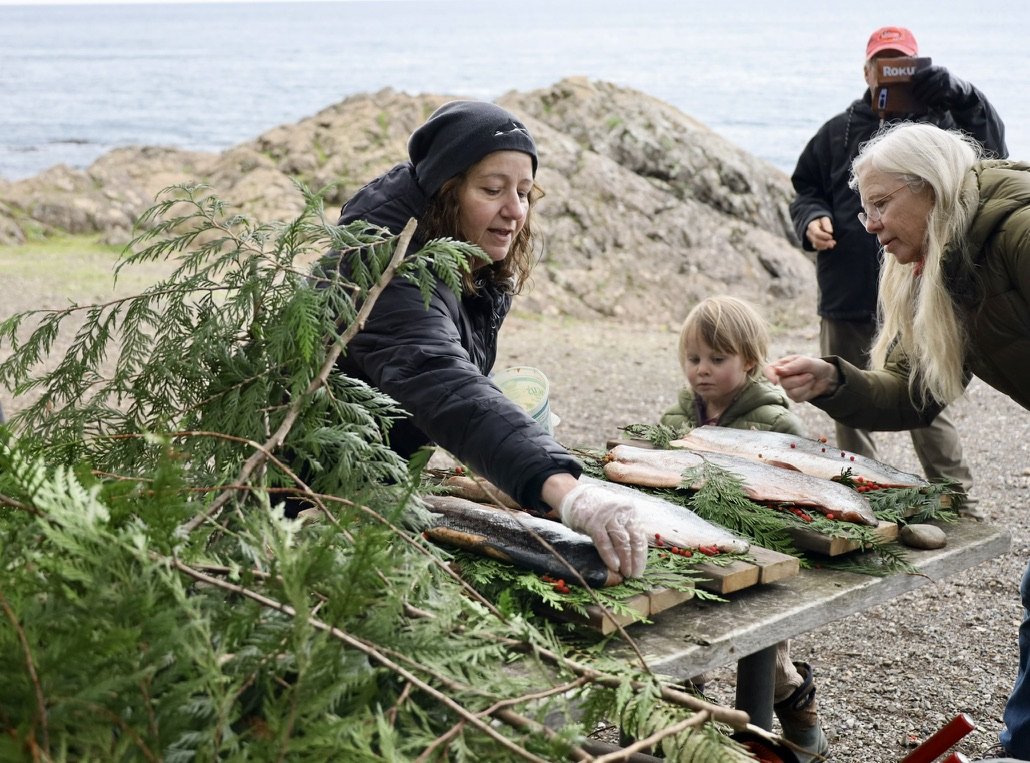
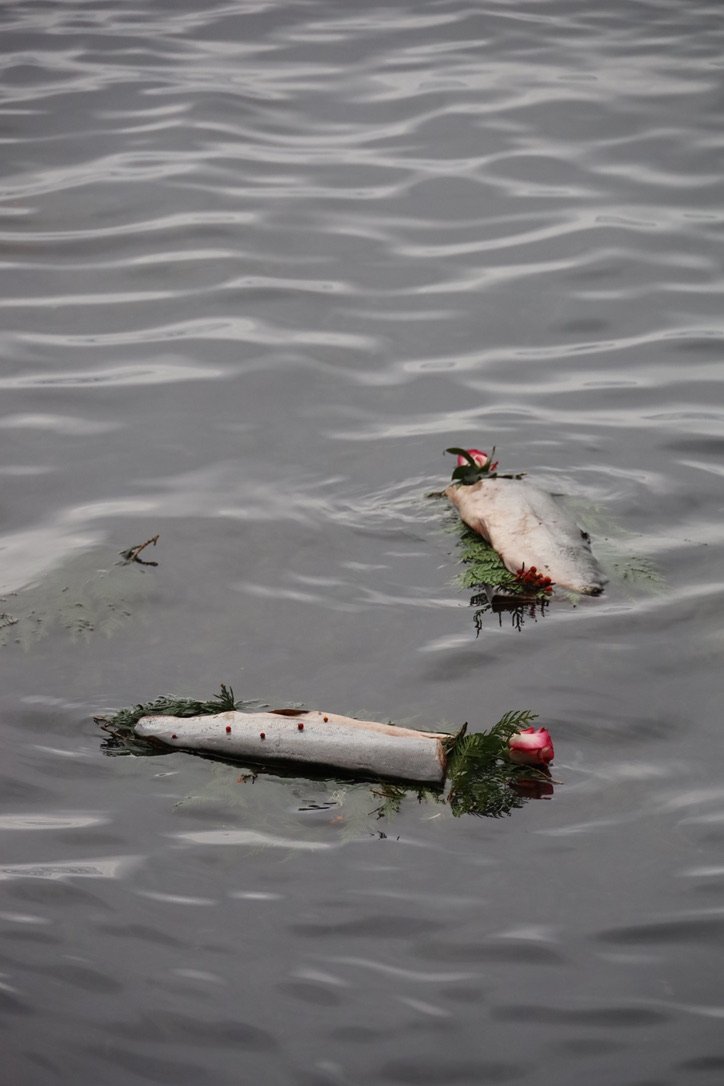
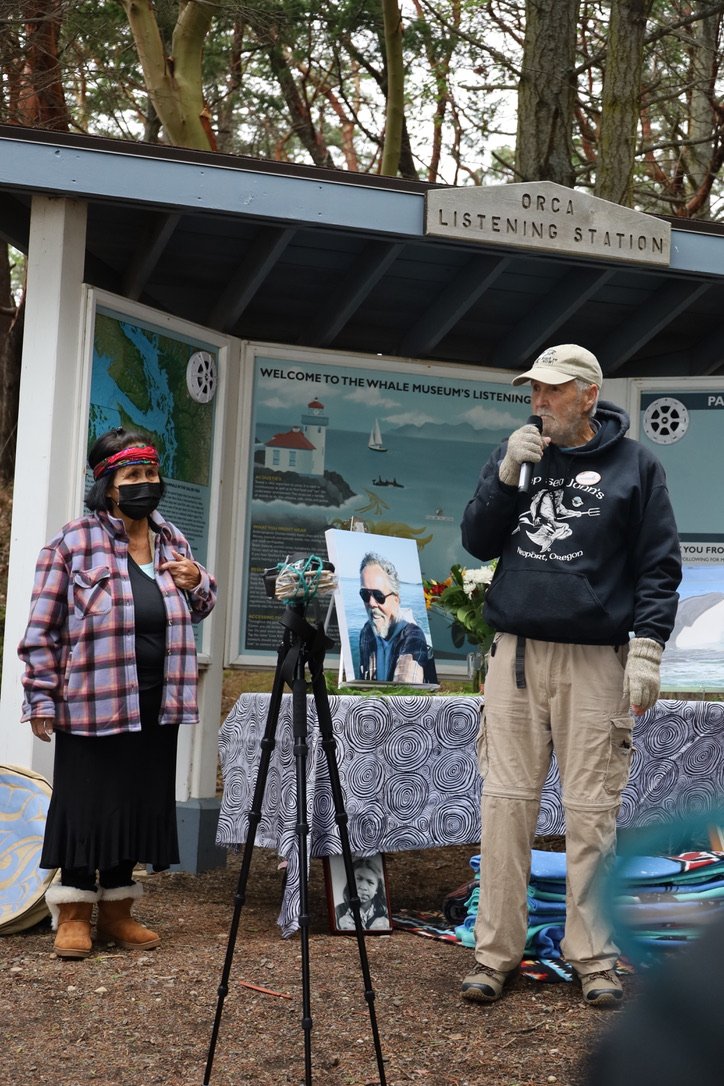
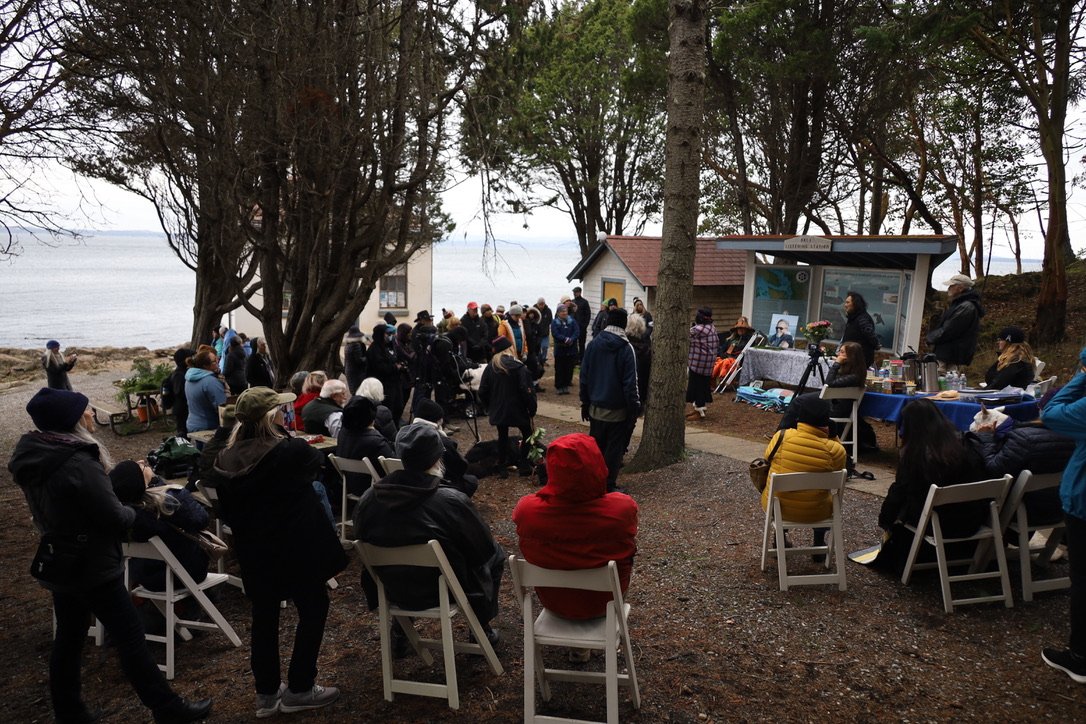
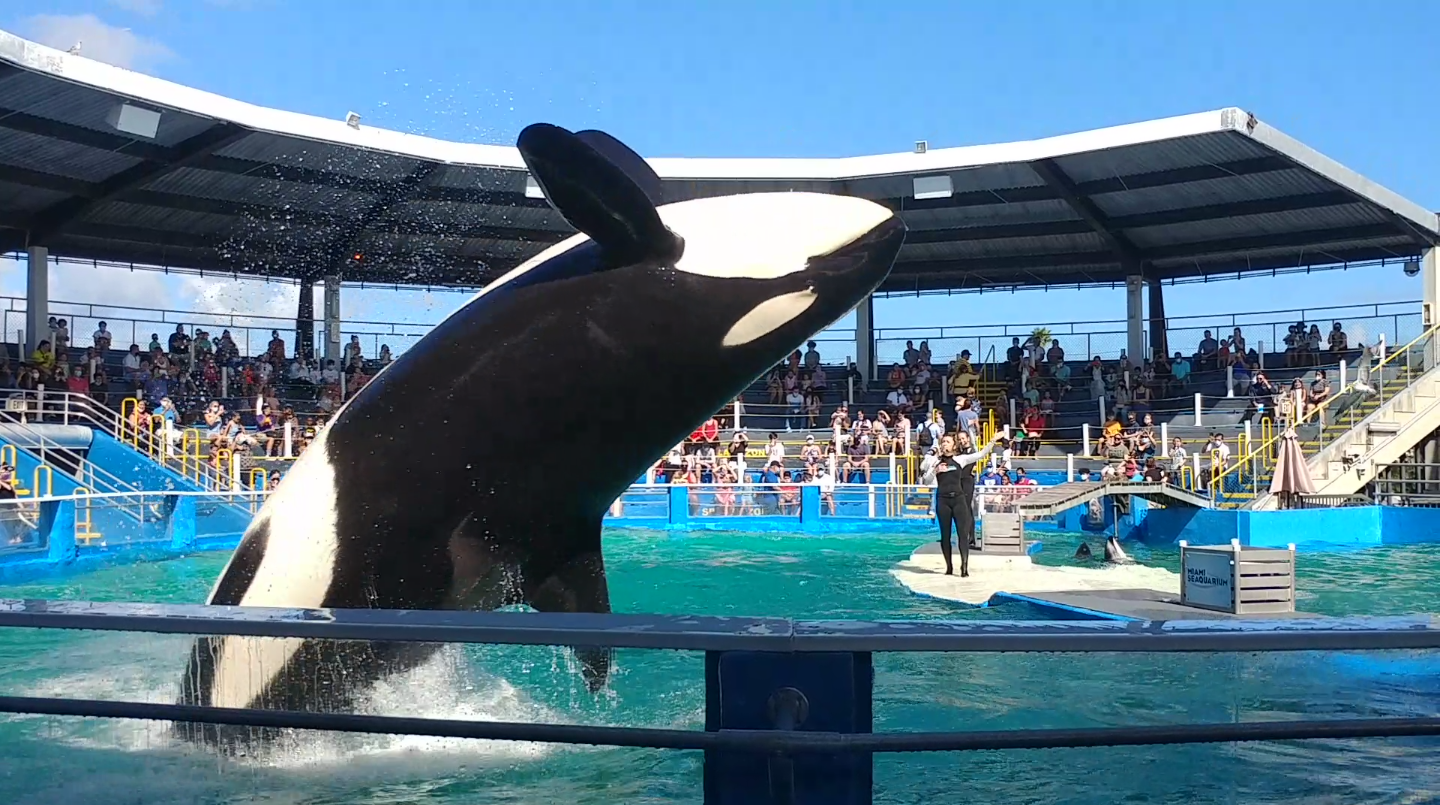
Rebecca Allen is a senior environmental studies student who enjoys sharing her love for whales through education and storytelling techniques.
Reid Hunter is a sophomore at Western with a passion for portraying the fragile beauty and importance of nature through his photography.



